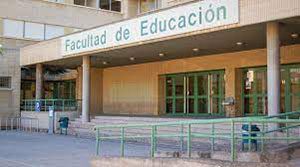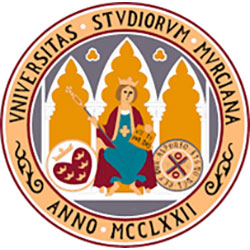University of Murcia

The key researchers from UMU involved in this project will be:
- Dr. Cosme J. Gómez. Coordinator of the project. (Senior Lecturer of Social Sciences Teaching, University of Murcia).
- Dr. Pedro Miralles (Senior Lecturer of Social Sciences Teaching, University of Murcia).
- Dr. Raimundo A. Rodríguez (Senior Lecturer of Social Sciences Teaching, University of Murcia).
- Dr. Juan R. Moreno (Associate Professor of Social Sciences Teaching, Universitu of Murcia).
- Dr. José Monteagudo (Associate Professor of Social Sciences Teaching, University of Murcia).
- Dra. Raquel Sánchez (Associate Professor of Social Sciences Teaching, University of Murcia).
- Dra. Ainoa Escribano Miralles (Lecturer of Social Sciences Teaching, National University of Distance Learning).
- Dr. Juan Hernández Franco (Full Professor of Early Modern History, University of Murcia).
- Dr. Antonio Irigoyen López (Senior Lecturer of Early Modern History, University of Murcia).
- Dr. Francisco Precioso (Associate Professor of Early Modern History, University of Murcia).
- Dra. Catalina Guerrero Romera (Senior Lecturer of Theory and History of Education, University of Murcia).
- Dr. Javier J. Maquilón Sánchez (Senior Lecturer of Research Methods and Diagnostic of Education Sciences, University of Murcia).
These 6 researchers are from the DICSO research group (Didactics of Social Sciences: https://www.um.es/dicso/es/), directed by Pedro Miralles and Cosme J. Gómez. This research group on social sciences education is the largest (44 members, including researchers and collaborators) and most scientifically productive group of the Faculty of Education of the University of Murcia, according to official data of the University via the supplementary research grant “Ayuda Complementaria de Investigación” (ACI). Over the last eight years, this group has coordinated three projects of the National Plan R+D+I and four projects funded by the Seneca Foundation (Agencia de Ciencia y Tecnología de la Región de Murcia). This group has 7 predoctoral workers (4 FPU and 3 FPI) and is supervising 30 doctoral theses.
The DICSO research group has very much experience in educational research about History Education (papers published on journals from Q1-Q2 of JCR as Comunicar, Psychodidactic journal, Educación XX1, Plos One, Applied Sciences, Frontiers in Psychology, etc.). Also this group has experience contrasted in evaluation of Educational Programs though educational research projects and in contact with History Teachers in initial training and with educational entities.
The University of Murcia (UMU) is an international institution with over a hundred years behind it, although its origins can be traced back to the 12th century. Today, it is home to more than 30,000 students (2,000 of them from abroad), 3,000 researchers and lecturers, and an administration force counting 1,200. The UMU is a reference for Higher Education in southeast Spain. At the same time it is a driving force in society in the Mediterranean Basin thanks to its Campus de Excelencia Internacional Mare Nostrum (CMN).
ACADEMIC OFFER. The UMU is an all-inclusive state university offering 60 degree qualifications – five of them dual degrees – 72 masters degrees and 36 PhD qualifications in Fine Arts and Humanities, Engineering, Health Sciences, Sciences, Social Sciences and Law. The UMU boasts 21 university centers in 5 campuses. In addition, the Universidad Internacional del Mar (UNIMAR) offers around one hundred summer courses in various areas of knowledge.
RESEARCH AT THE UMU. The University of Murcia is geared toward academic excellence and is a key player in the world of research with its 350 research groups, 4 research centers and institutions, the Office for International Research projects OPERUM and close collaboration with national and international industry. The UMU boasts international recognition while its quality has been tried and tested by the most important certifications: as example, the Faculty of Education is the only one of its type in Europe to hold the ECA.
INTERNATIONALIZATION. The UMU has signed agreements with over 900 universities around the world. With more than 20 years of experience, both the International Office and thevResearch Office OPERUM are very active and have extensive experience in hosting European and international cooperation and research projects and promoting research excellence.




